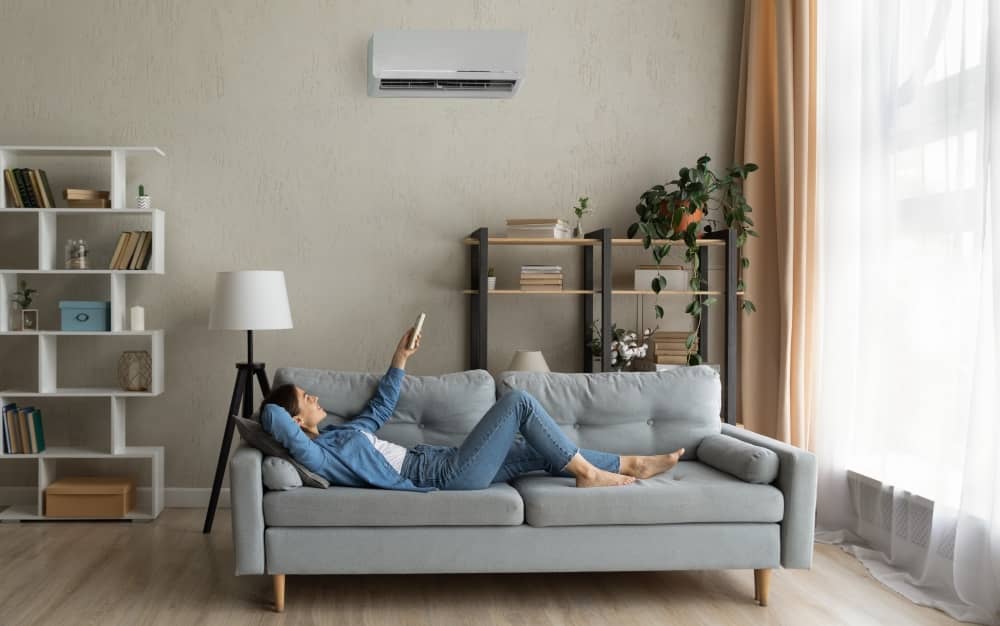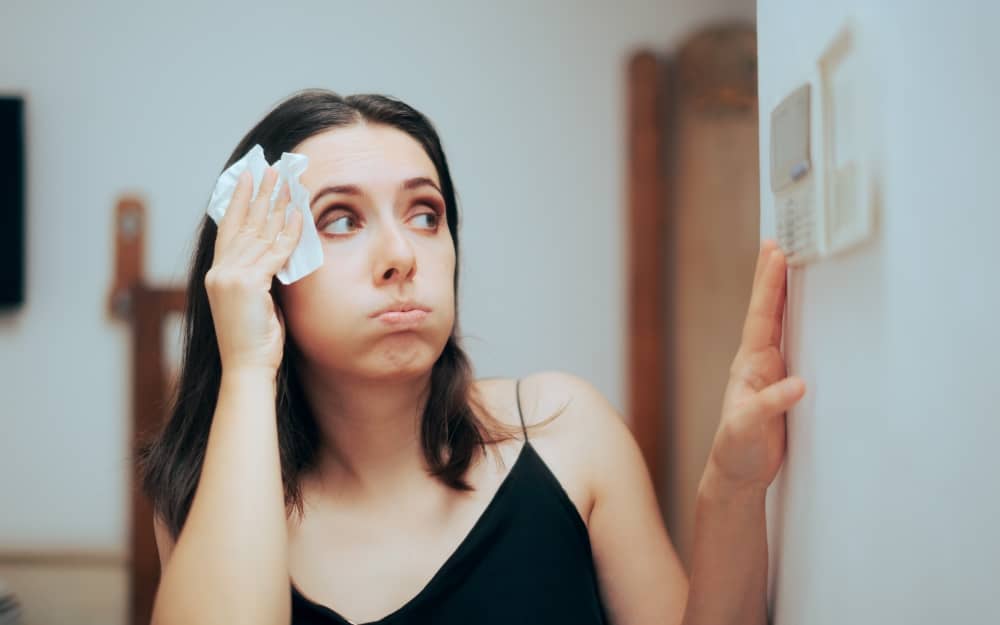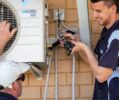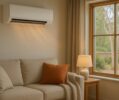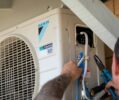Given our scorching Perth summer, we’re guessing you have your air conditioner cranked — and we don’t blame you!
But you may be wondering how to ensure efficient energy use and reduce your energy bills.
We’ve got 7 tips to help you minimise energy use while still staying cool and comfortable through these hot days!
7 Tips for Efficient Energy Use in Summer
1. Use Appliances Wisely
Using appliances wisely is an effective way to cut down on energy use.
For instance, we opt to use microwaves during summer rather than relying on an electric oven or stove.
Along with decreasing energy usage, a microwave won’t heat the house in the summer. We also love grilling out!
Here are more of our favourite tips to help use appliances wisely to cut down on energy use:
- Only start a washing cycle when your machine is full
- Opt for the shortest appropriate cycle when you run your washer
- Take advantage of these sunny days by hanging clothes outside to dry rather than using your dryer
- Select energy-efficient temperatures for your fridge (4 or 5 degrees °C) and freezer ( -15 to -18 °C)
- Ensure the seal on your fridge is free of cracks or gaps that allow cold air to get out
- If you have a second freezer or fridge, keep it off unless it is being used
- Keep coffee makers, blenders, toaster ovens, stand mixers, air fryers, and food processors unplugged when not in use
- Only run your dishwasher when it is full and take advantage of the economy cycle if it has one
- Run appliances at night to save money by taking advantage of off-peak rates
2. Close Curtains and Doors
Our second tip for efficient energy use is free, easy, and makes a big impact — close curtains and doors.
Closing curtains can prevent a room from heating up due to UV rays streaming through glass windows. This is especially important during the hottest times of day when the sun is strongest.
Keep exterior doors closed and adequately sealed. You may also want to consider only cooling the rooms you spend the most time in and closing off other areas of the house.
3. Switch Off Electrical Devices
We all know to turn off lights when we leave a room. But what about your electrical devices, like computers and printers?
To further reduce your energy use, unplug electrical devices when not in use.
Keeping electrical devices plugged at all times is convenient. However, it is important to be aware that these devices may be using energy even when they aren’t in use.
Certain devices, such as phones and laptops, are only intended to be plugged in while charging. So in addition to increasing energy use, you can damage the device’s battery.
Here are examples of ways to ensure efficient energy use for electrical devices:
- Turn off your Wi-fi router when not in use
- Turn off computers or laptops when not in use
- Do not allow laptops or phones to charge overnight
- Only turn on your printer when using it
Learn More: Energy Saving Ideas from the Australian Government
4. Cool Efficiently
For each degree cooler you keep your home, energy use increases by up to 10%.
To keep your home comfortable without causing your energy bills to skyrocket, try setting your air conditioner to 25 to 27°C.
5. Analyse Your Home’s Energy Use
The Residential Efficiency Scorecard is a useful tool to evaluate your home energy use, pinpoint areas you can improve, and give personalised recommendations.
Available throughout Australia, the Victorian Government’s scorecard rating gives insight into how much energy your home consumes.
Just like you can purchase an air conditioner based on an Energy Star rating, this tool will give your home its own Energy Star rating.
Find a Scorecard assessor near you here.
6. Cut Back on Hot Water Usage
Hot water use is a significant portion of the average household energy bill.
Here are our favourite tips to minimise hot water use and result in lower energy bills:
- Invest in low-flow showerheads and faucets
- Limit your shower time
- Wash your clothes in cold water instead of hot water (yes, as long as clothes aren’t too soiled, cold water can clean too!)
- Check the temperature setting on your hot water system to make sure it isn’t higher than necessary
- Have your hot water system professionally inspected once a year to ensure it is operating properly
- If you have a tank-style water heater, use a programmable timer to give it a break when you’re away or sleeping
You May Also Like: Energy Saving Tips for Winter
7. Maintain Your Air Conditioner
An air conditioner that is dusty, blocked by debris, or damaged will work harder than it needs to and use more energy. This means higher energy bills.
Maintaining your air conditioner helps it run as efficiently as possible and can keep your energy bills in check.
The first step in maintaining your air conditioner is scheduling regular professional servicing. We recommend having your air conditioner looked at by an A/C technician at least once a year.
Here are important tips for maintaining your air conditioner:
- Keep it clean and clear of dust
- Change the filter at least once every three months (you may need to change the filter more often if you live in a particularly windy or sandy area or at higher elevations)
- Clean the indoor grill regularly to remove dust
- If you notice damage, replace the grilles
- Make sure no objects, such as curtains, plants, furniture, decorations, or other objects are blocking the unit
- Use a broom or leaf blower to carefully clear debris and leaves away from the outside grill
- Schedule professional maintenance for your unit at least once a year
- Use a vacuum or cloth to wipe the outer surface of the unit
- If the internal components need cleaning, leave it to a professional
- If your air conditioner has a self-cleaning option, use it to help eliminate pollen, fungi, and mould
- Inspect the fans regularly, keep them free of dirt, and notify an A/C technician right away if you notice damaged or faulty blades
Learn More: How to Tell if Your Air Conditioner Needs Servicing
Need Help Staying Cool This Summer? Contact Our Experts At Air Cond Installs WA
With temperatures and prices rising, we hope you find these efficient energy-use tips helpful.
If you have questions or would like to schedule professional servicing for your air conditioner, please contact our team.
Need an air conditioner? As Perth’s trusted split system air conditioning installation specialists, we’re here to help you beat the heat this summer.
Get in touch with our team with any queries, for a free quote, or personalised split system air conditioner recommendations.

